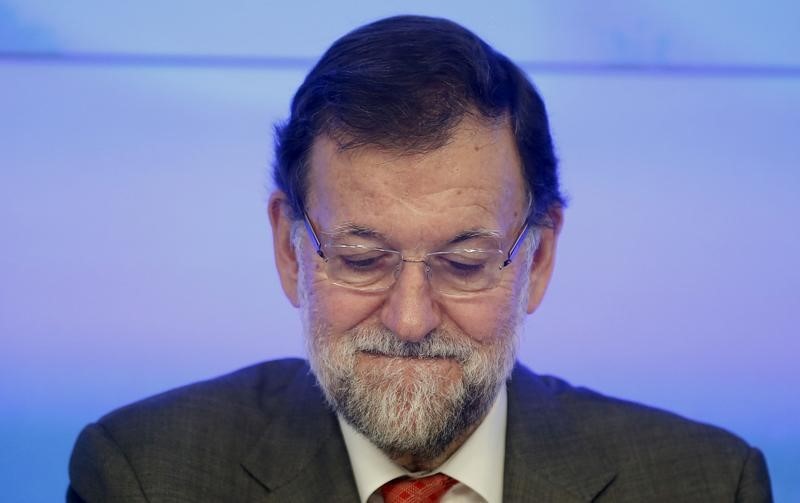By Julien Toyer
MADRID (Reuters) - Voters in southern Spain dealt a blow to Prime Minister Mariano Rajoy's hopes of winning a second term this year on the strength of the country's economic recovery, abandoning his centre-right Popular Party for upstarts and the opposition Socialists.
One of the countries worst-hit by Europe's economic crisis, Spain is now one of the continent's fastest growing economies, but unemployment remains high and most Spaniards are still a long way from recovering pre-crisis living standards.
Rajoy's government has implemented severe cuts in state services, which it says saved Spain from needing a European bailout and speeded its path to recovery. Its opponents say the measures deepened the crisis, hurt the poorest and wrecked the prospects of a generation of youth, half of whom are unemployed.
In a vote for the regional parliament of Andalusia, Spain's most populous region, around a third of voters that backed the PP at the last election three years ago abandoned the party on Sunday.
While Andalusia, where the Socialists have ruled for 33 years, has its own dynamics and has always been a minefield for the PP, analysts said the trend there would be damaging for Rajoy's national ambitions.
The vote cost the PP 17 seats in the 109-seat regional legislature, leaving it with just 33.
The Socialists held on to their 47 seats, while Podemos (We Can), a year-old upstart leftist group competing in its first domestic regional election, won 15.
Another upstart, centre-right Ciudadanos which could threaten Rajoy by siphoning off PP voters, grabbed 9.
"The PP should be worried because the trend is clearly on the downside," said Jose Pablo Ferrandiz, sociologist at polling firm Metroscopia.
The PP insisted on Monday it would stick to a "responsible" economic policy and would not step away from reforms.
A key ally for German chancellor Angel Merkel in Europe, Rajoy is a strong opponent of Greece's new ruling Syriza party which wants to see austerity conditions lifted from a bailout. Rajoy argues that austerity helped Spain, and Greeks should not be allowed to avoid the pain that was necessary for Spaniards.
But with elections at home, he will be under pressure to make life easier for voters.
LEADERSHIP
Opinion polls show the PP will struggle in local and regional votes in May and September leading to a general election due by year-end, as the Socialists and Podemos both capitalise on anti-austerity sentiment.
"Spanish citizens have made a turn to the left and it will likely be reflected in the next elections," said Ferrandiz.
The Andalusia vote suggests that the two-party system that was built when the country returned to democracy in the late 1970s may now be fracturing, creating a wider field.
Although the Socialists and the PP came first and second on Sunday, newcomers Podemos and Ciudadanos jointly secured about 25 percent of the vote to position themselves as new viable political options nationally.
Polls suggest the trend is even more pronounced in the country as a whole than in Andalusia where the Socialists are so well entrenched.
Recent opinion polls have put the four formations all neck-and-neck at around 20 percent of voting intentions nationwide, a result that would be catastrophic for both Rajoy and the Socialists.

Some political analysts suggest a new debacle in the next leg of the electoral marathon in May could even generate a debate within the PP about whether to ditch Rajoy as leader for the general election, although this is still seen as an unlikely scenario.